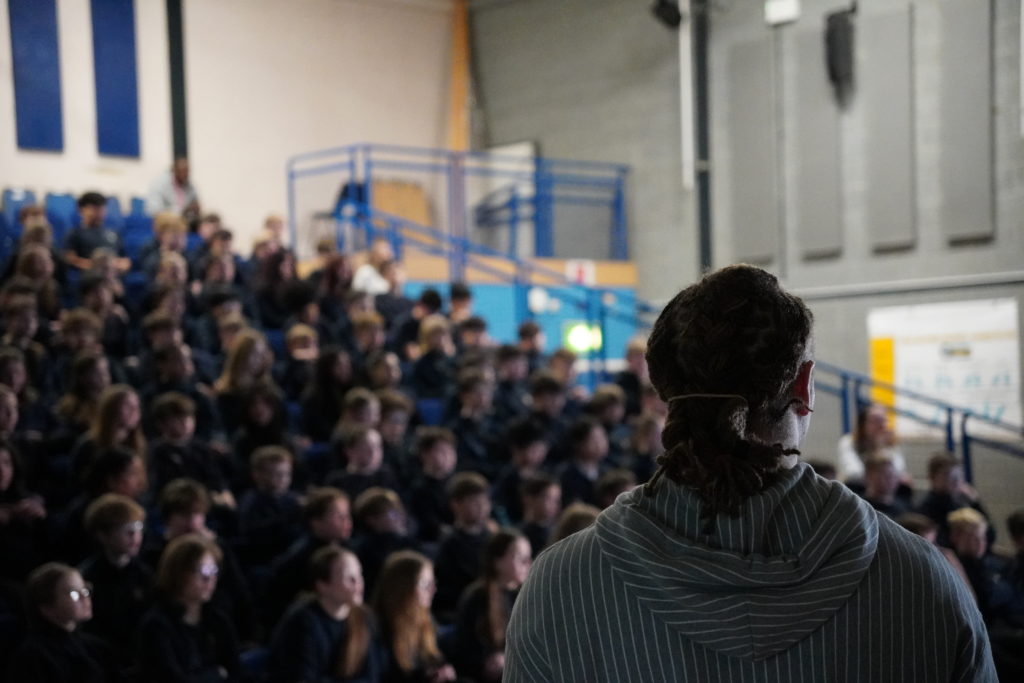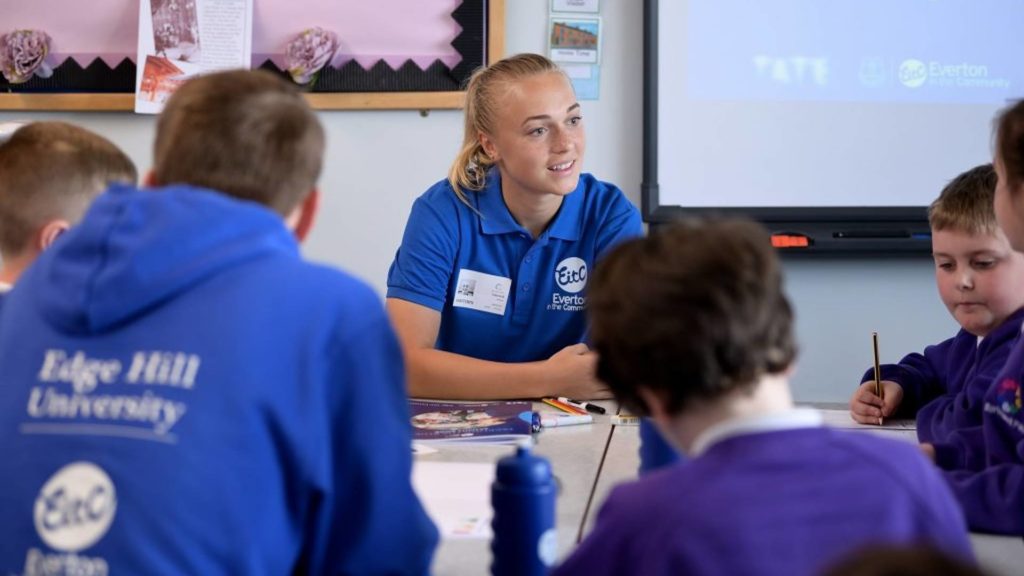With artists like Ed Sheeran recently calling on the Prime Minister to commit to long-term funding for music education, it’s clearer than ever that the arts are essential for young people. It shouldn’t be seen as a luxury but as a necessity. Growing evidence shows that arts education plays a key role in helping young people thrive, enhancing their cognitive, emotional, and social development.
Programmes focused on creativity, self-expression, and performance can build confidence, improve well-being, and offer a positive outlet for energy and ideas. At Justice in Motion, we bring arts into education in a powerful way that engages and connects with young people, especially those who might be vulnerable to exploitation. Through interactive workshops, we create safe spaces for young people to explore important issues, develop new skills, and make positive choices about their future.

Helping Young People Learn and Grow
Creative learning supports academic success. A 2025 review led by Professor Becky Francis highlights the gap in arts opportunities between state and private schools. Since 2010, arts subjects have been pushed aside in favour of core subjects. The review emphasises how creativity is vital for children’s development, not only culturally but also for their emotional well-being and inclusion. Boosting arts education can help young people thrive both academically and socially.
So, why is this important? Taking part in creative activities like drama, dance, music, and art helps young people develop key skills such as focus, problem-solving, and perseverance, which support their learning in other subjects.
A 2024 study by Durham University, ‘Education Endowment Foundation – Arts Education Review’,found that students who regularly took part in creative learning showed better memory and concentration. This improved their performance in subjects like maths and English, and teachers also noted better behaviour and higher attendance.
Boosting Mental Health and Wellbeing
The NHS Digital report published in 2023 revealed that one in five children and young people in England now has a probable mental health disorder, with anxiety, depression, and feelings of isolation on the rise. Creative activities have been shown to help address these issues by offering young people an outlet for emotional expression. For example, a 2024 study found that when young people participated in a creativity camp involving painting, writing, and performing, they experienced a reduction in depression and anxiety symptoms, along with improvements in overall well-being.
The Arts Council of Wales’ ‘Arts and Minds’ programme is a great example of how creativity is being integrated into mental health services. In partnership with the Baring Foundation, the programme embeds creative approaches into NHS mental health support across Wales, helping young people process complex emotions and combat issues like anxiety and depression through creative expression. This initiative highlights the vital role of the arts in supporting young people’s mental health.
Similarly, the 2024 ‘Arts4Us’ project, led by Edge Hill University and backed by £2.5 million in funding, offers a digital platform with creative activities designed to improve mental well-being in children and young people. Projects like these demonstrate the growing importance of the arts in helping young people process emotions and build resilience.

Imaged Credit: Edge Hill University
The Agency: Turning Young People’s Ideas Into Action
The Agency,supported by Battersea Arts Centre and Contact Theatre, empowers young people to create and lead community-focused projects. Using a Brazilian methodology, it was introduced to the UK through a partnership between Battersea Arts Centre, Contact, and People’s Palace Projects.
In March 2025, The Agency’s Faces of Change series spotlighted key team members, including Craig in Chester, who helped Agents bring their ideas to life, and Leigh in Bolton, who launched the programme in the area. These individuals have played an essential role in empowering young people with the skills to create positive change in their communities.
Justice in Motions March Education Tour 2025
We had a busy month in March with our CODE Education Programme tour. It was great to engage with young people in interactive presentations and workshops, teaching them about the dangers of county lines and knife crime, including how to spot the signs of those who might be at risk.
Our education programme for schools and students, was originally trialled in 2024. It offers educators a range of activities delivered by our team, which include assemblies and presentations (both in-person and pre-recorded), as well as workshop sessions in rap and lyric writing, parkour, physical theatre and trials bikes.
Justice in Motion is aiming to reach a further 6,000 children in 2025 through our programme. We work together with schools to provide the programme. Our focus is primarily on communities where the risks of involvement in county lines, violent behaviour and gang culture are significant.
Inequality in Access to Arts Education
Despite the clear benefits, access to arts education remains unequal. Schools in disadvantaged areas are often the first to lose arts subjects due to funding cuts. The Social Market Foundation reported in 2024 that the number of arts teachers in English secondary schools has dropped by 17% since 2010, disproportionately affecting schools in lower-income areas (Social Market Foundation, 2024). In response, over 700 artists and cultural leaders signed an open letter in 2024 calling for urgent government action to address the decline in arts education provision, warning that a generation of young people is being denied the opportunity to develop their creative potential (The Times, 2024).
We aim to bridge this gap by delivering accessible, high-quality arts programmes to young people who need them most. Through partnerships with schools, youth services, and community organisations, we ensure creative opportunities are available where they can make the biggest difference.

Looking Forward: Building Brighter Futures Through the Arts
The power of arts education is undeniable. It helps young people develop important skills, supports their mental well-being, and addresses social challenges. Through creative expression, young people build resilience, boost their academic success, and gain confidence to face life’s obstacles.
Our approach to arts education goes beyond teaching creative skills. It empowers young people to make positive choices, engage with their communities, and realise their full potential. Through our education programmes, including workshops and interactive presentations, we are helping young people to think critically, express themselves, and make better decisions.
If you would like to learn more about our youth education programme or discuss how we can collaborate to support young people in your community, please get in touch with our Artistic Director Anja, by emailing info@justiceinmotion.co.uk.